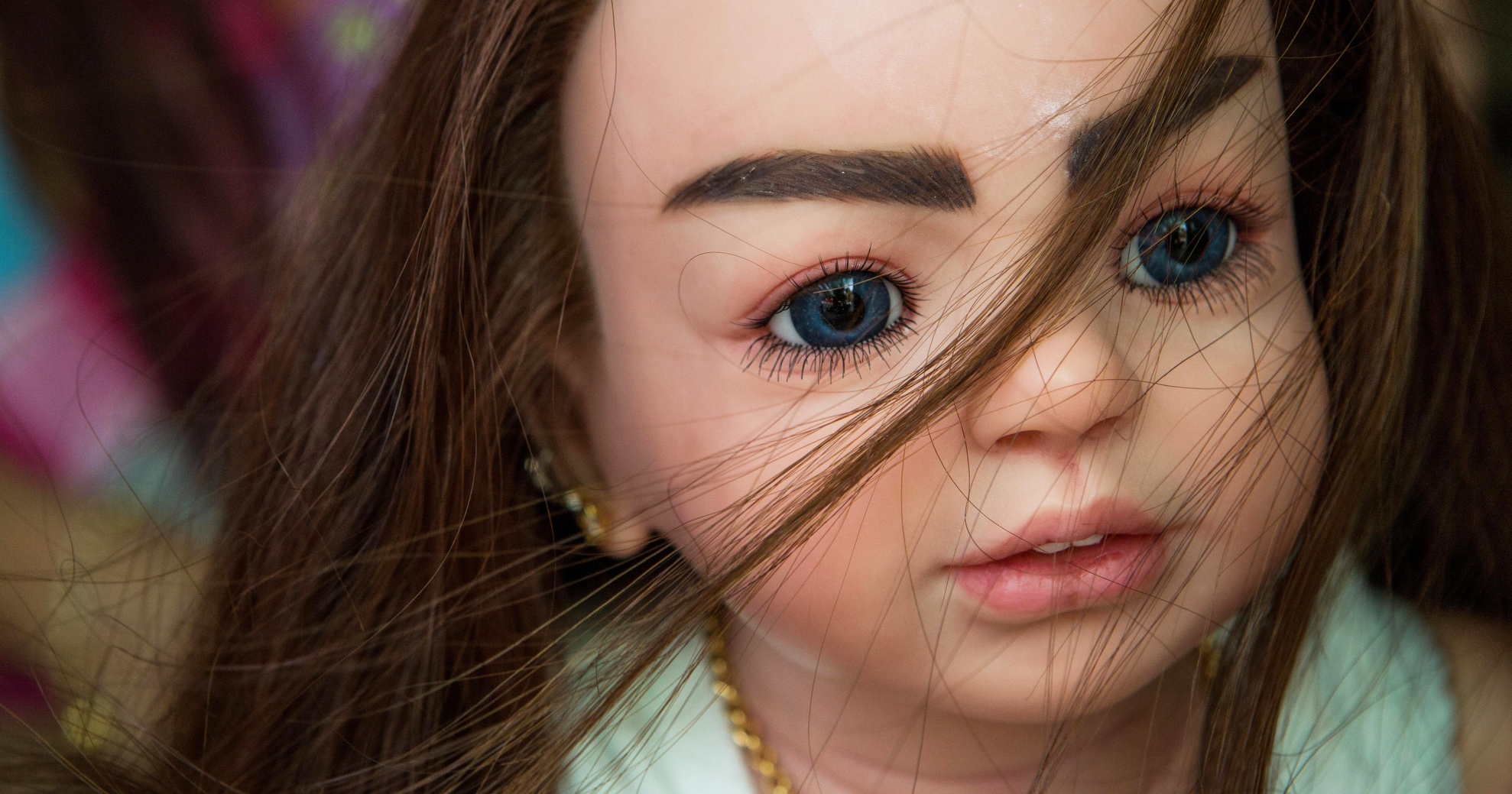
The phenomenon of Thailand’s luk thep dolls reached viral status in January 2016, when Thai Smile Airways started to allow passengers to purchase seats and meals for their realistic dolls. Luk thep, which translates to child angel, resemble American Girl, or Reborn dolls, and have become an intriguing part of Thai culture to the outside world.
“If you want good fortune for your business or family,” says Bangkok-based photojournalist Amanda Mustard, who has been documenting luk thep’s popularity, “[the owners] believe if they take care of the luk thep doll, luck will come to them.” There are various degrees to an owner’s participation, some will simply keep the doll in their business and not take it home, whereas others go as far as feeding and changing their dolls, hiring a babysitter, and setting up group playdates, according to Mustard. Certain restaurants in Thailand have even offered a special luk thep menu, with meals for the dolls.
It’s difficult to point out when the popularity of luk thep exactly started. Last year, Thai radio personality DJ Bookko began to include his luk thep doll Wan Sai during public appearances and on social media. A central figure in the luk thep movement has been Mama Ning, a woman who claims to be the mother of luk thep — and who allegedly started the trend around five years ago. Her followers, who she refers to as disciples, are a group of about a dozen women who follow her leadership and teachings in luk thep. Ning is also one of the people that makes the dolls and customizes them, before people adopt the dolls from her. Adoption is seen as a spiritual process, in which Ning matches the owners with their luk thep, Mustard observed.
To certain luk thep owners, the dolls can be seen as a source for a family to stay focused, and as something therapeutic to overcome obstacles and addictions, such as alcoholism.
Historically, lucky symbols and items have been a large part of Thai traditions and ancient folklore. Similar to luk thep dolls, kuman thong, which were once made from stillborn-baby bodies, are figurines that if treated well, will bring good luck to their owner. “There’s a lot of overlap with animism, Taoism and Hinduism, which is where the luk thep come in,” says Mustard. “Many people wear amulets for various purposes of bringing good fortune and merit and I think the luk thep dolls are just an extension of that.”
Mustard recalls her first sighting of one of the dolls when she walking through a parking lot. “I thought this woman in front of me was carrying a baby,” she says. “I was taken aback seeing that it was actually a doll.” Seeming to notice the dolls more often, it piqued her interest: “I just wanted to know more for myself, and it grew into this project.”
In March 2016, Mustard had the opportunity to attend Mama Ning’s wai khru ceremony, which is a traditional gathering in Thai culture where students pay respects to their teacher. There, she met a family that had just adopted a doll named Natalie. “It was a husband and wife and they brought their son, who was maybe 8 or 9 with them,” she says. “The family said they recently got Natalie, because they wanted to have a daughter and they couldn’t, so this was helping them.”
But, with the increased media attention, the luk thep community has experienced a backlash with some Thai people suggesting that the doll owners were mentally ill. Everyday sightings of the dolls have become increasingly rare, with additional claims from Thai police that the dolls may be used by Thai drug smugglers, the Economist reports. “For whatever reason [the owners] may not be interested in taking care of the luk thep anymore. They often turn the dolls over to a temple,” says Mustard as any objects that might have held a spirit can’t be discarded.
Amanda Mustard is a photographer based in Bangkok. She is a founding member of the Koan Collective, a group of emerging photographers pursuing careers in a changing media landscape through collaboration and collegial support.
Kenneth Bachor is TIME’s associate photo editor, overseeing entertainment and culture.
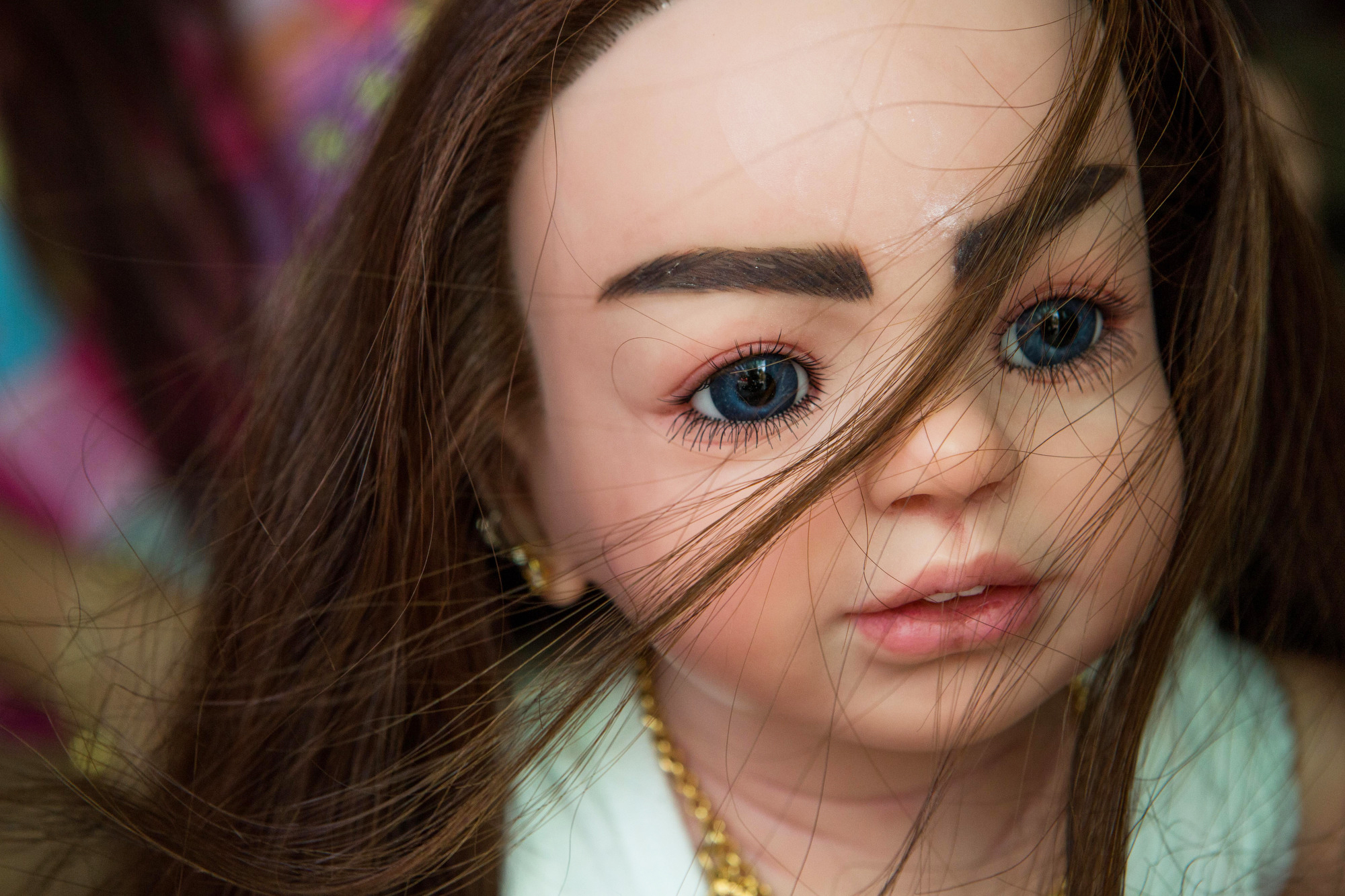
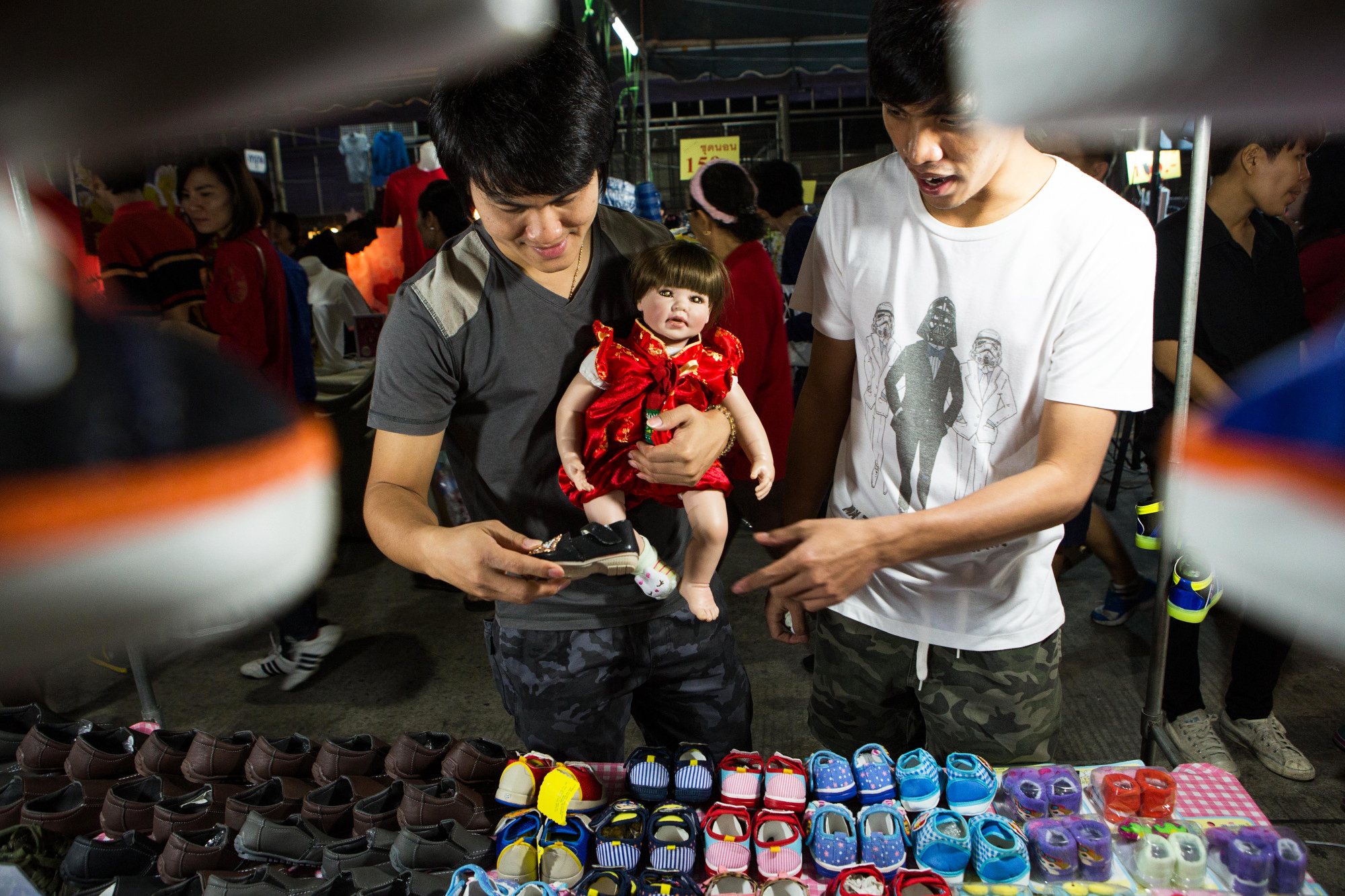
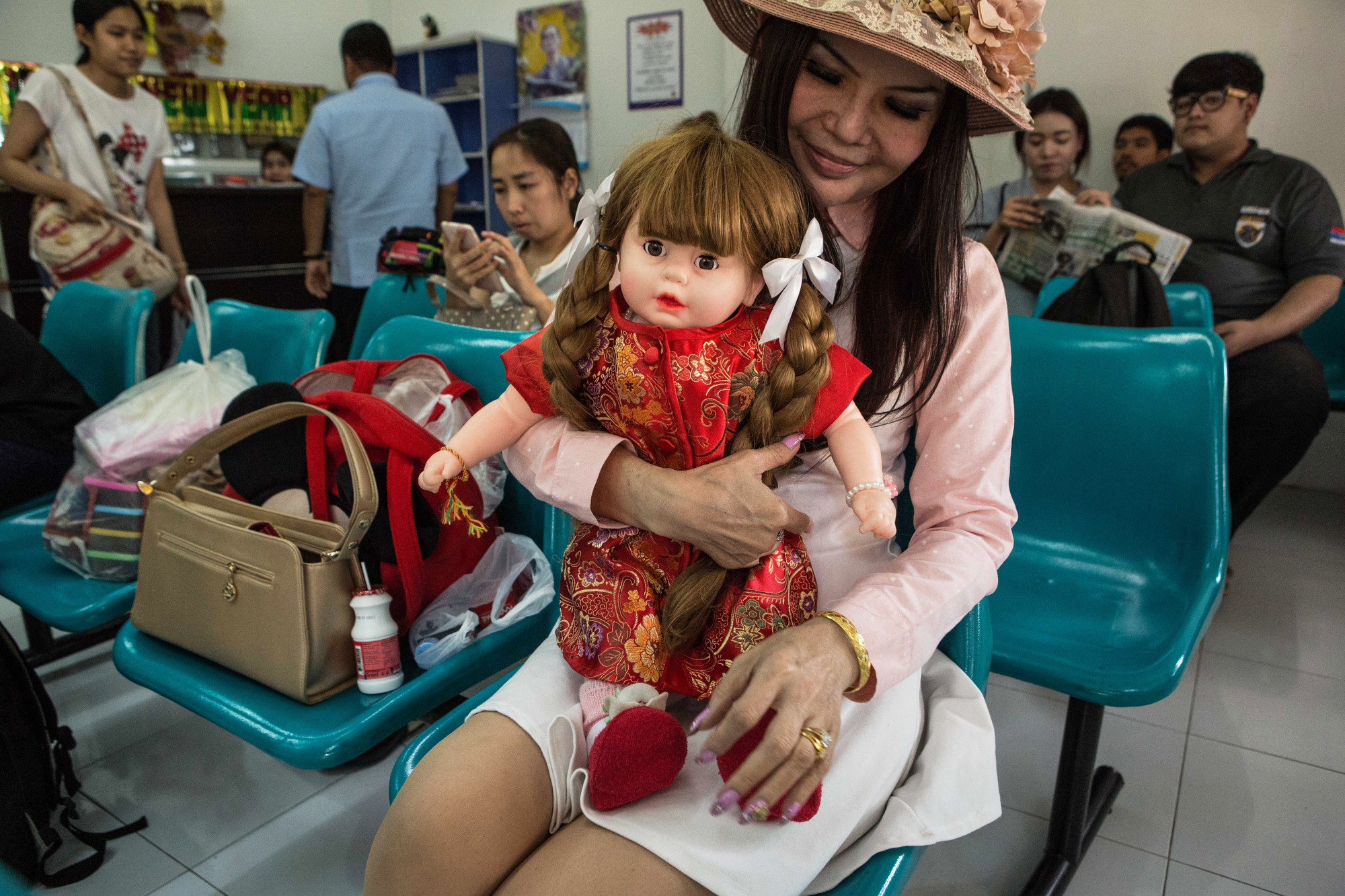
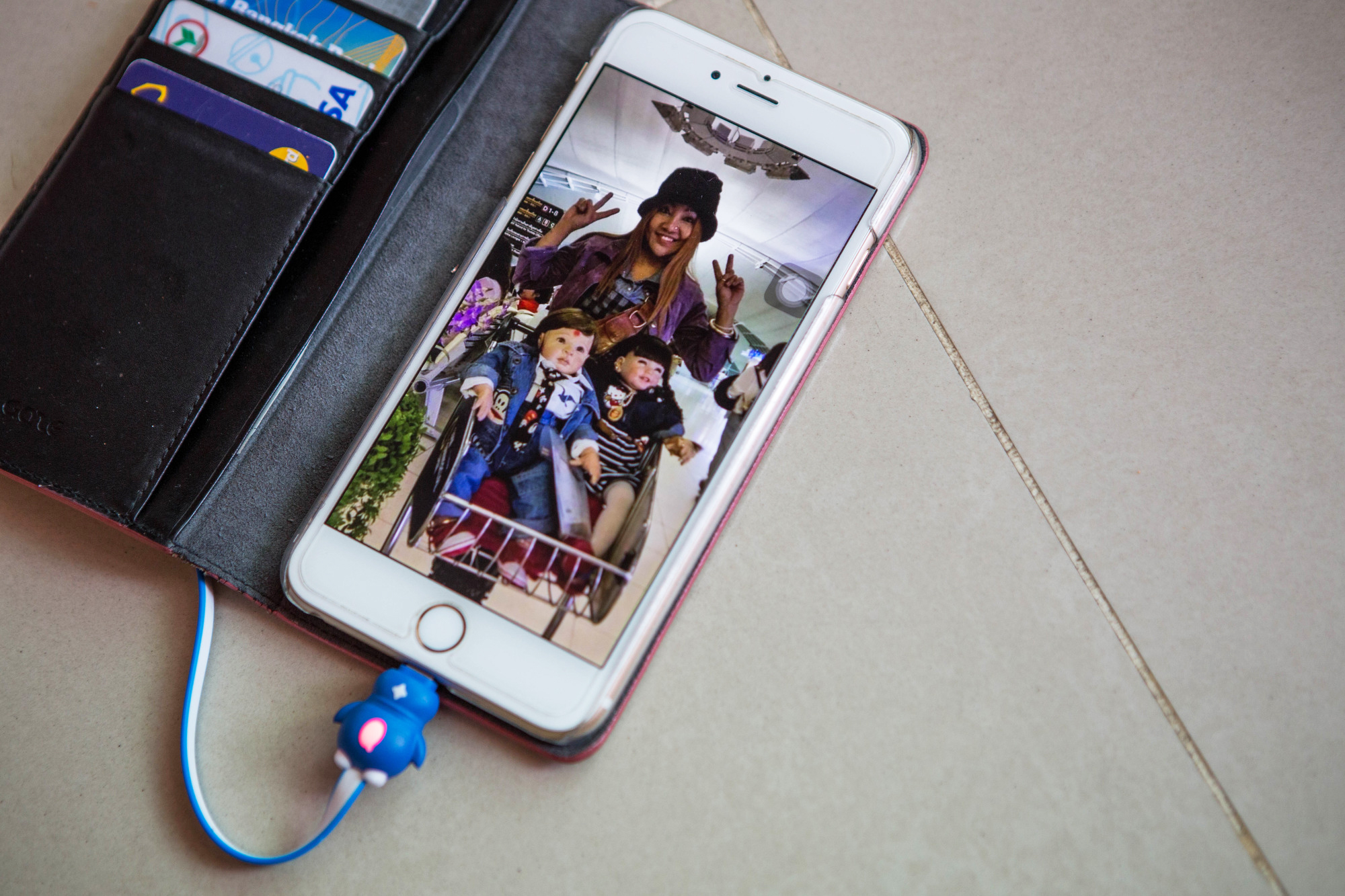
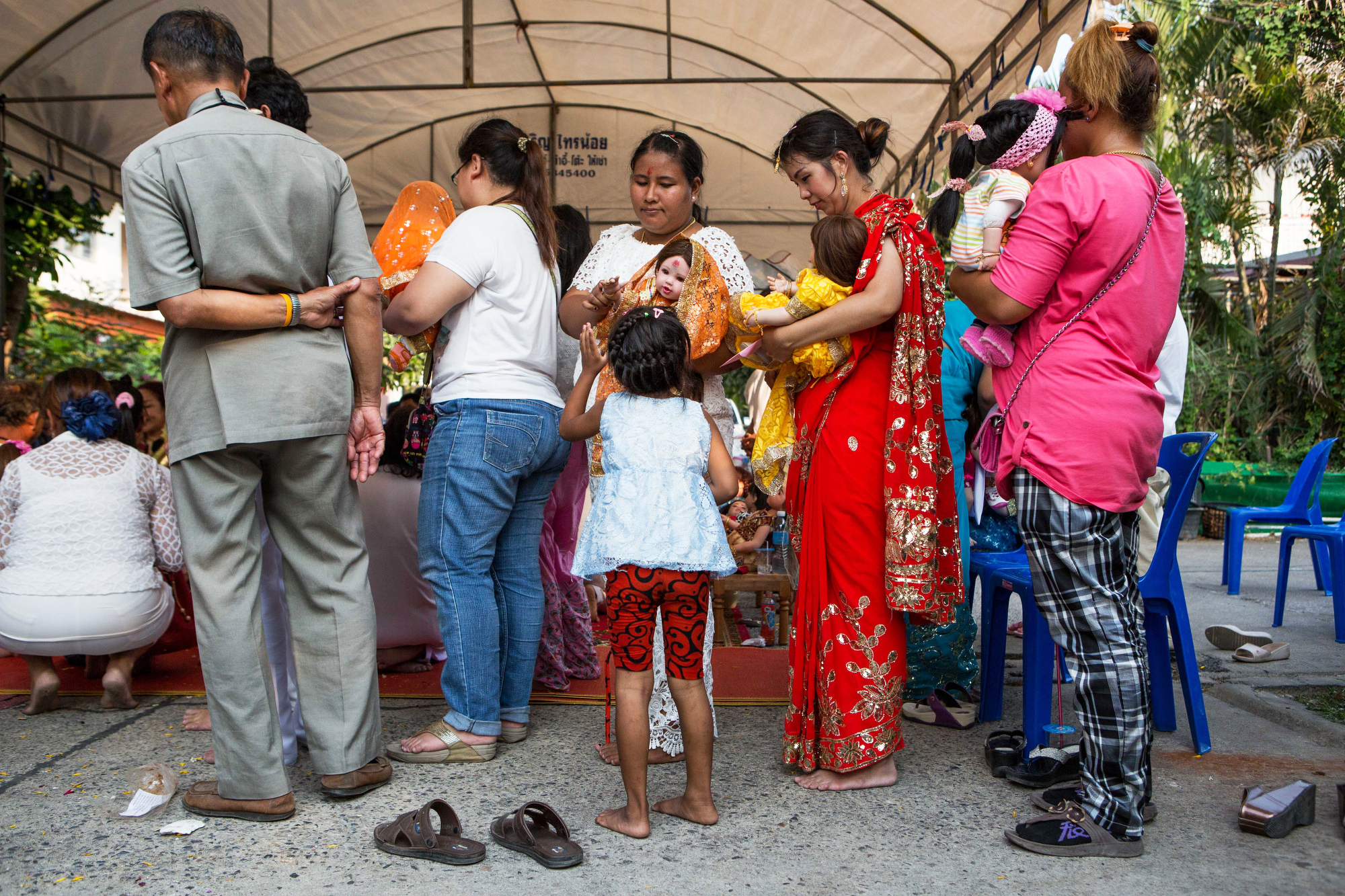
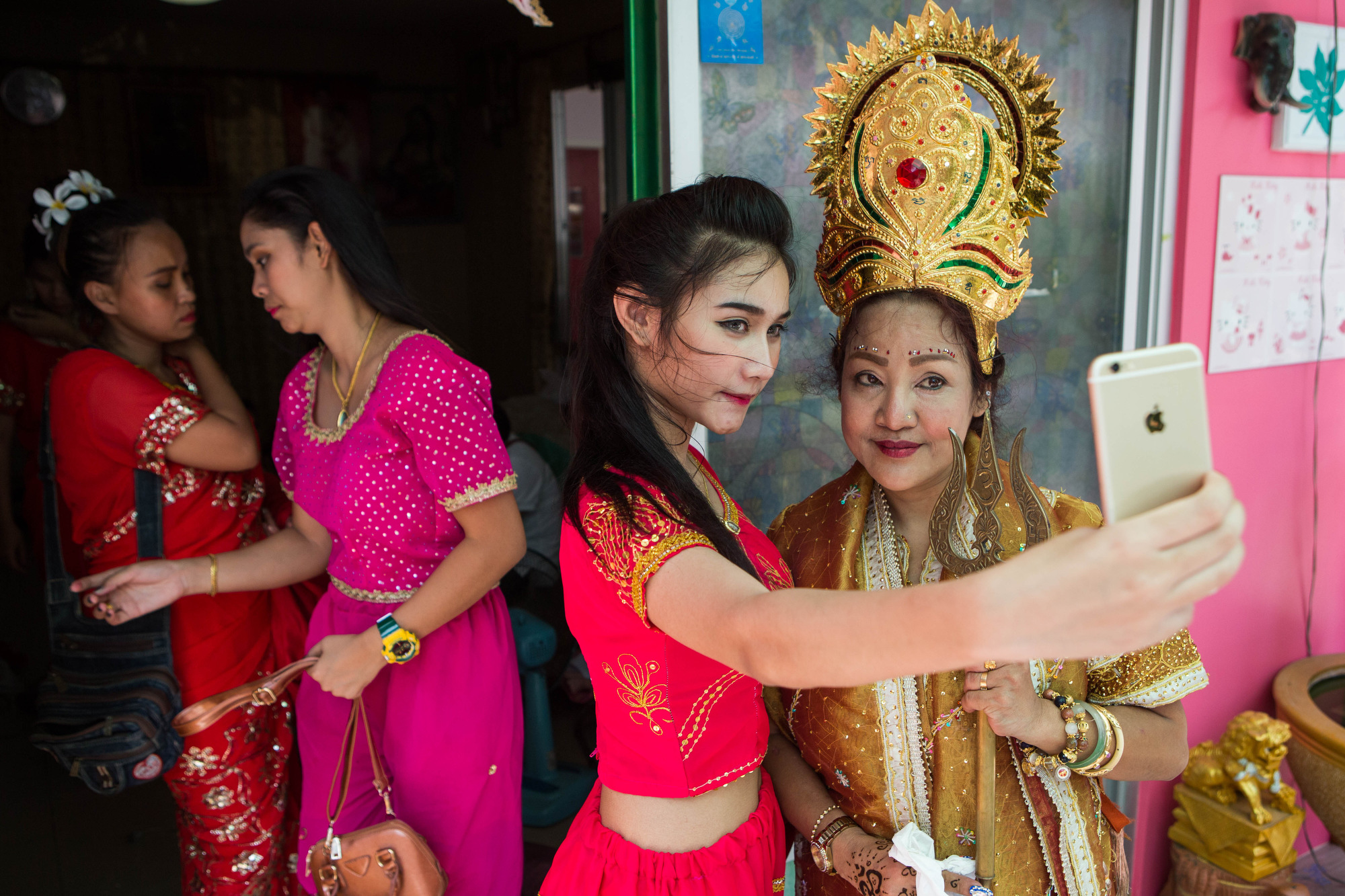
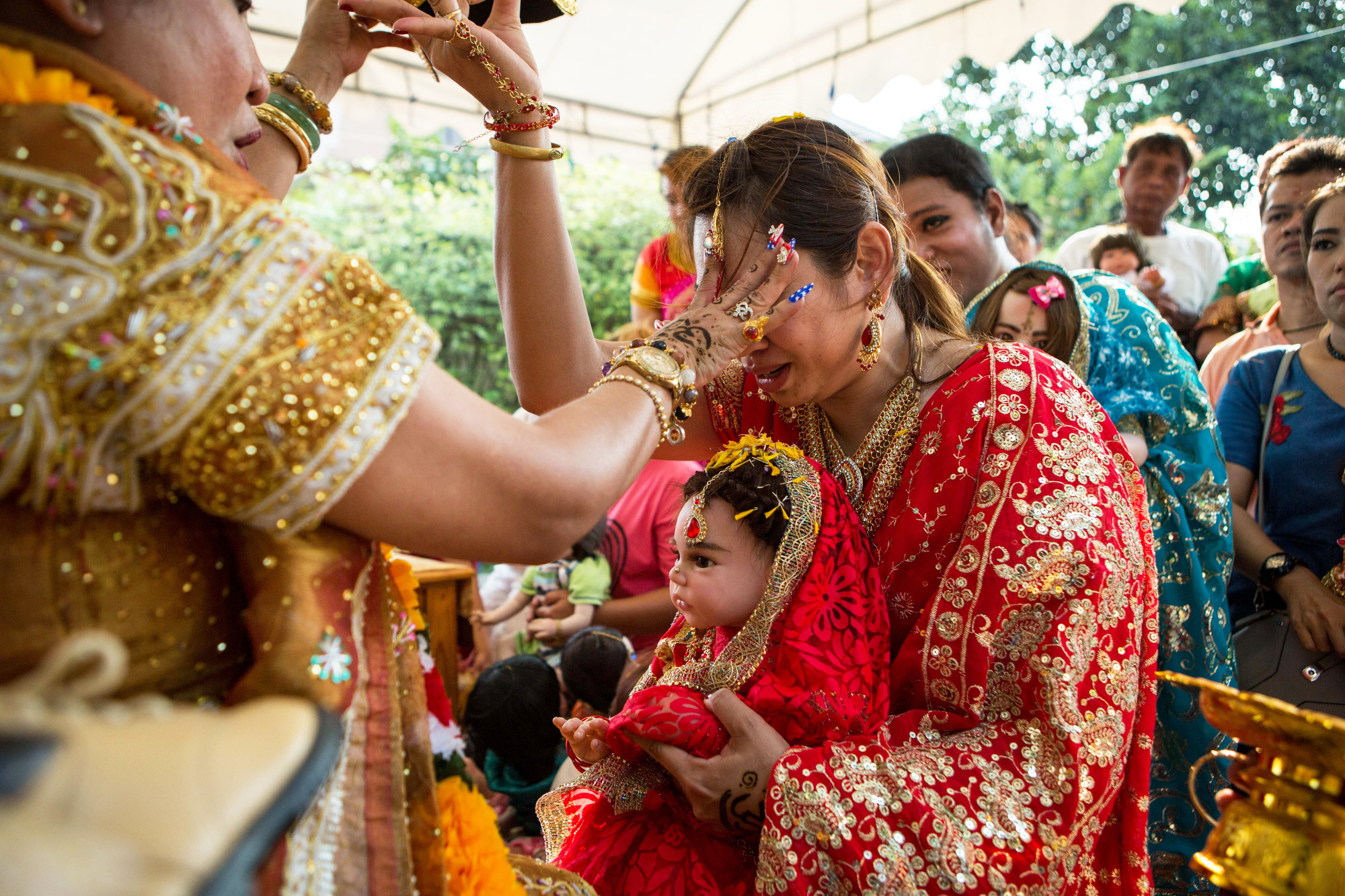
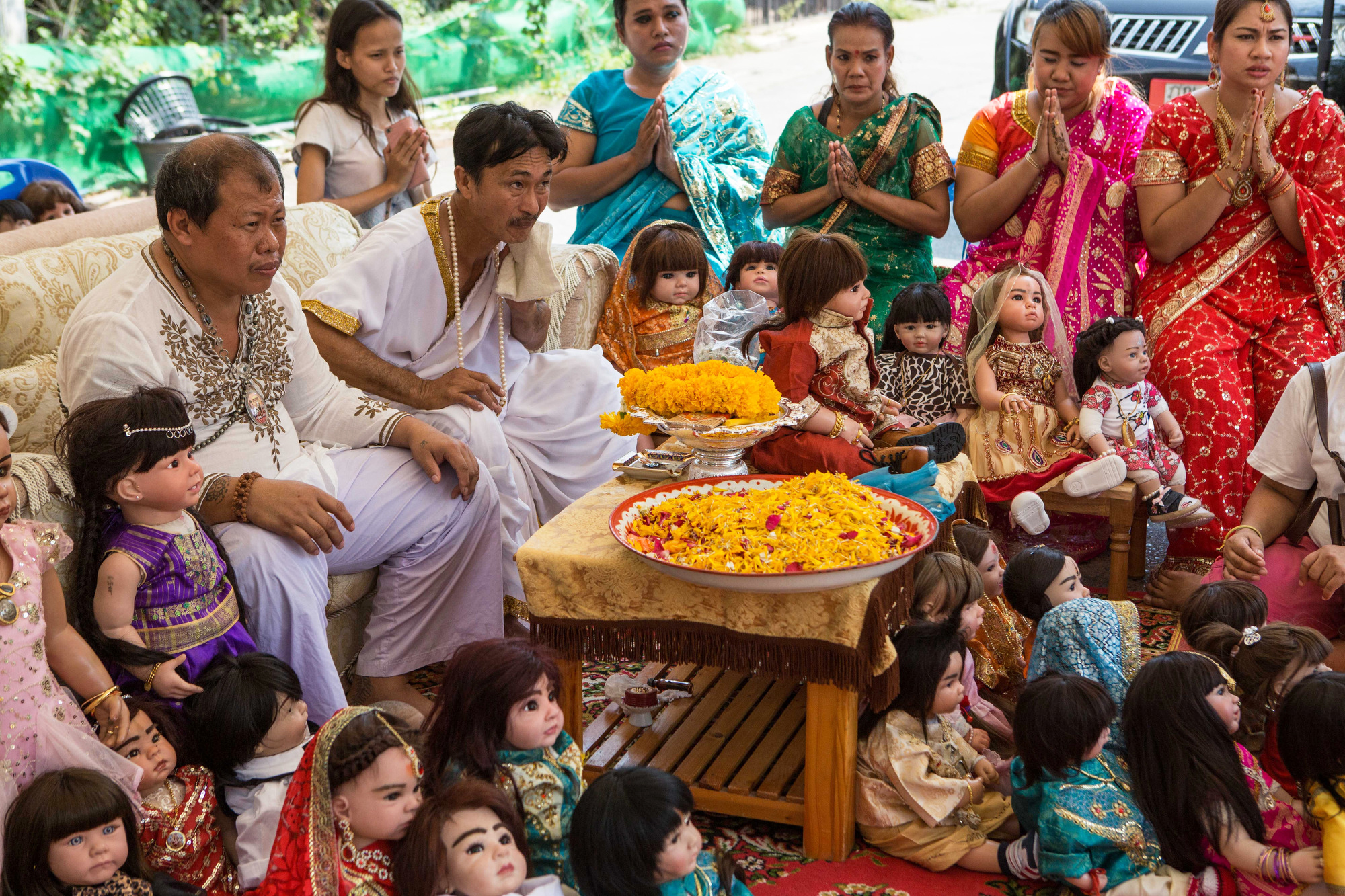
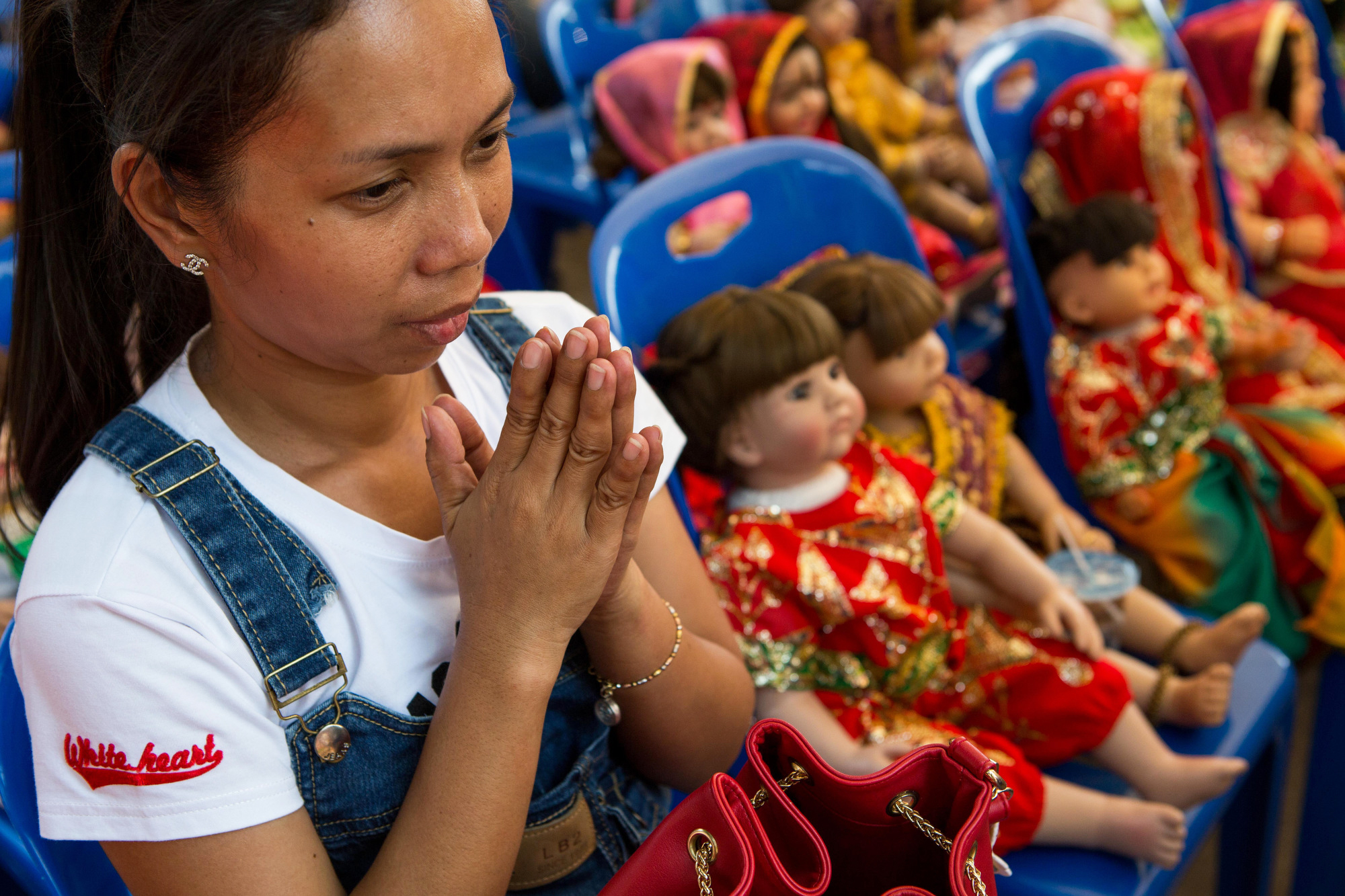
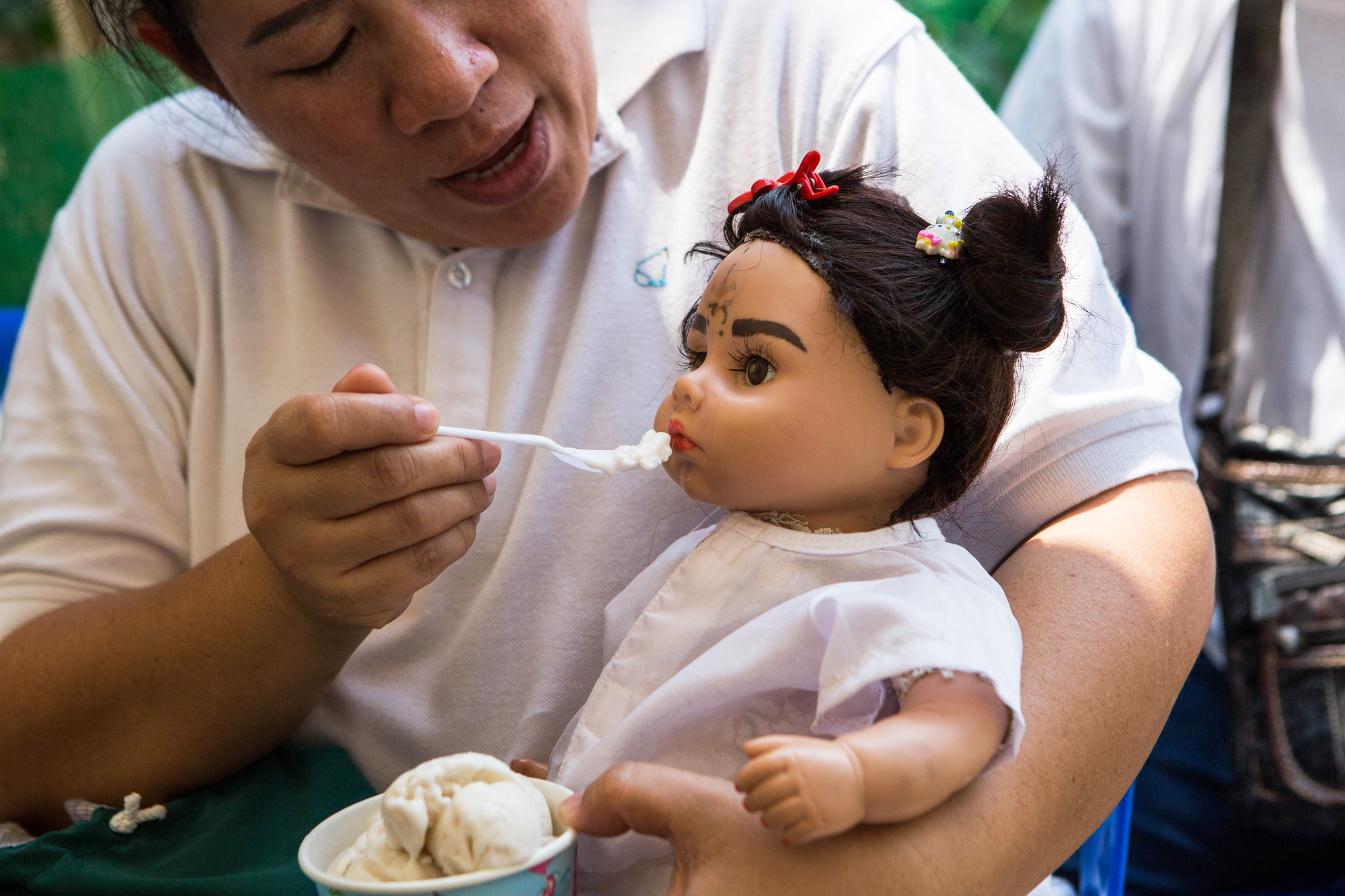
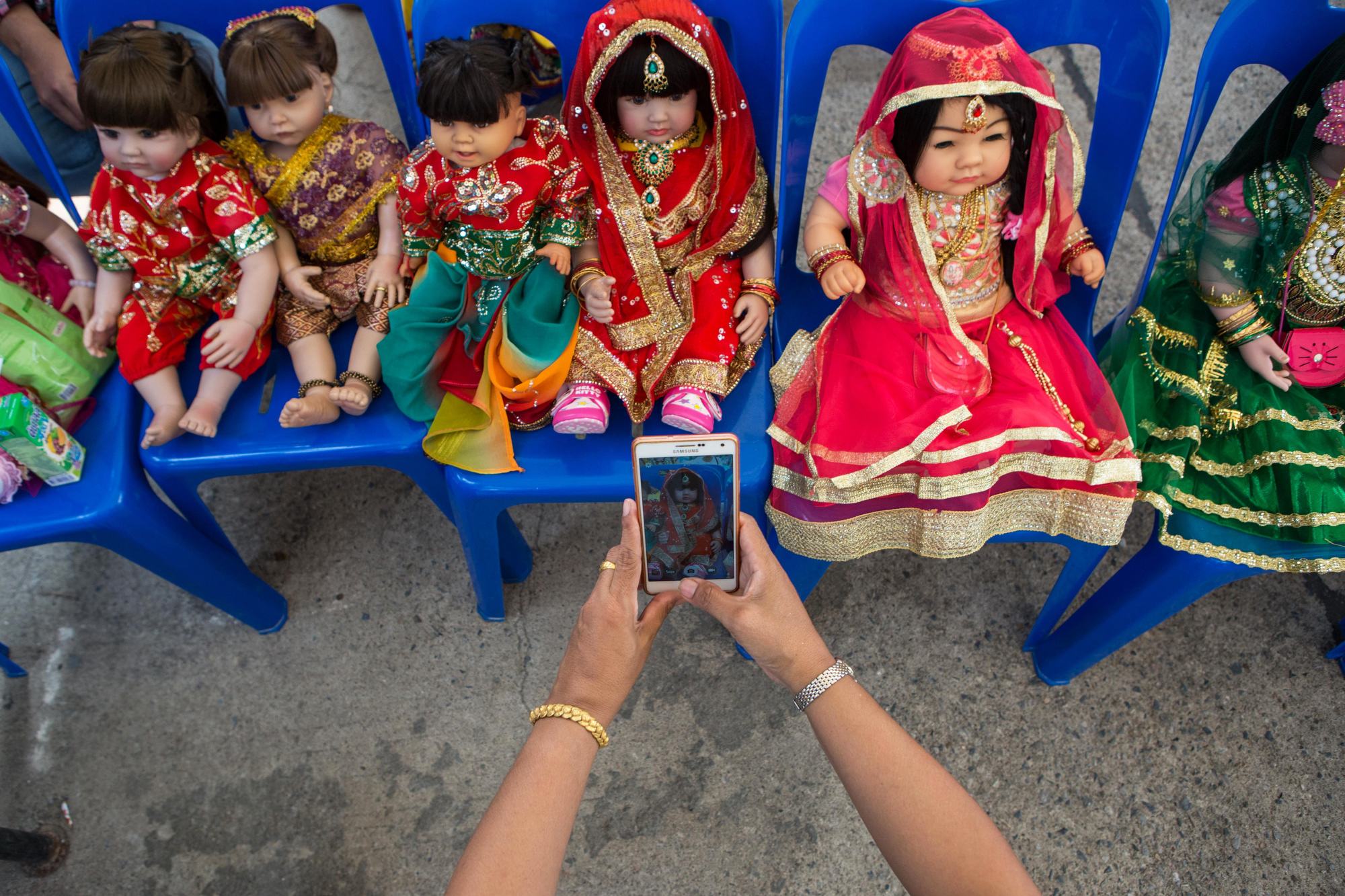
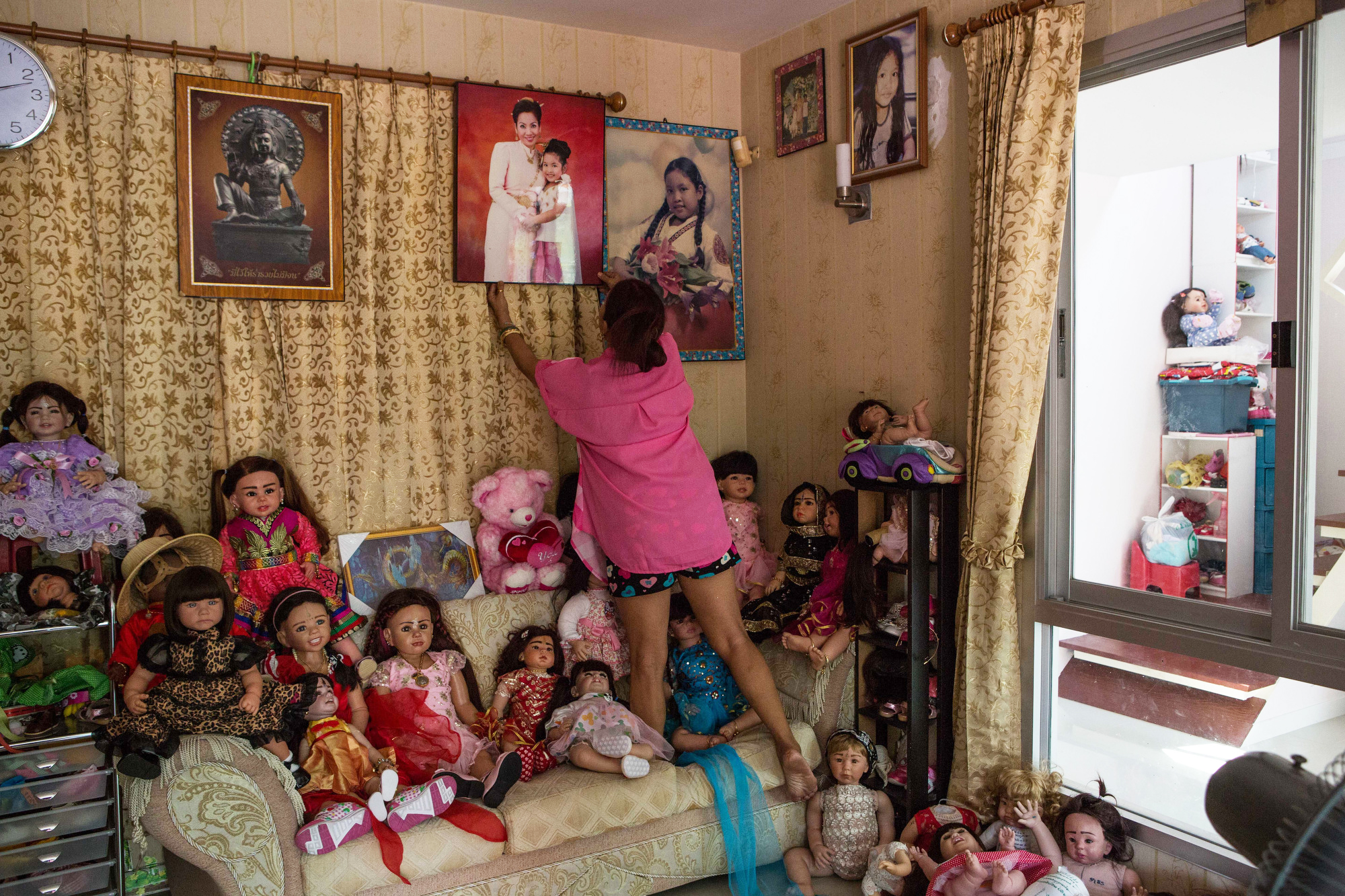
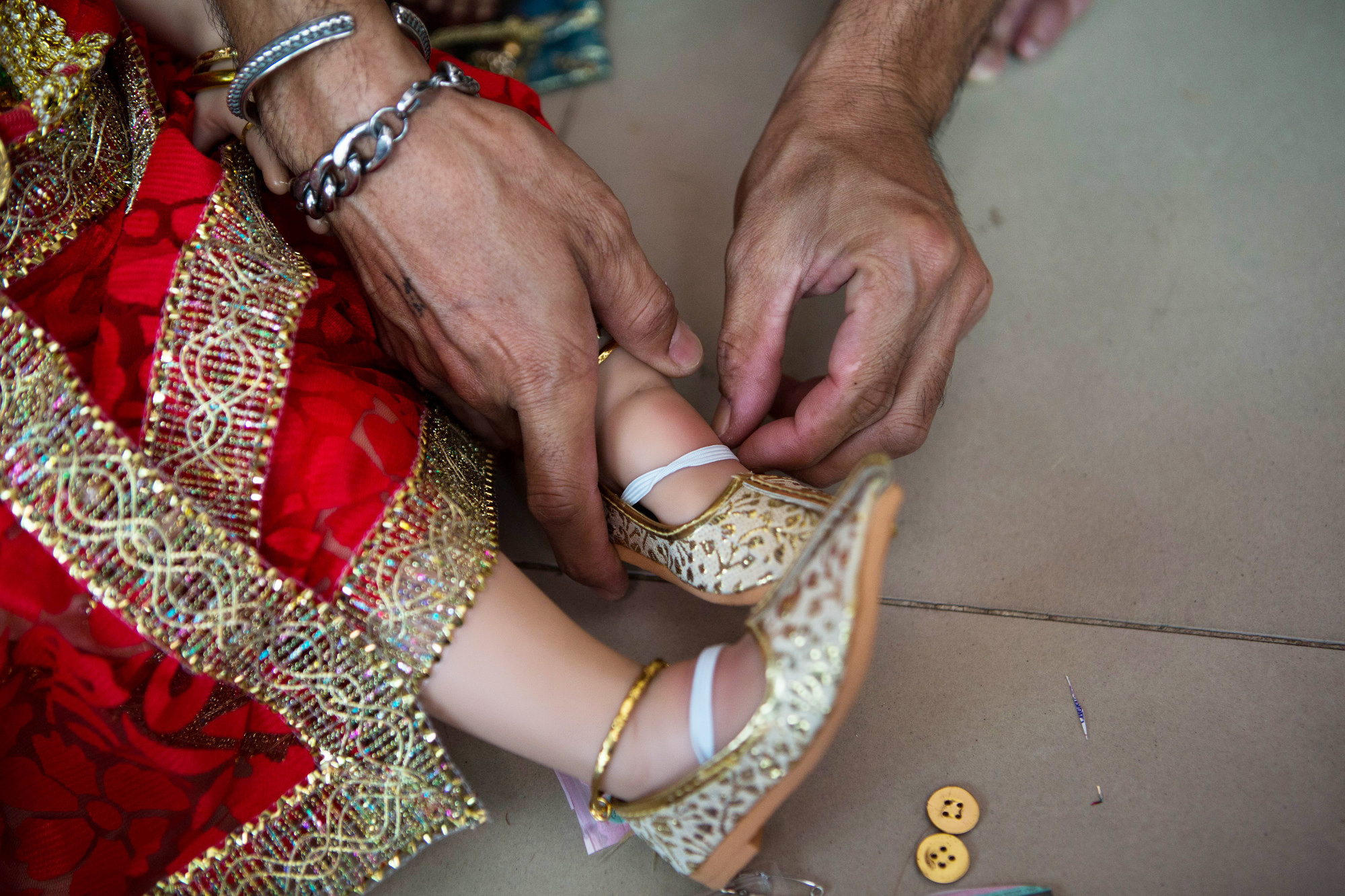
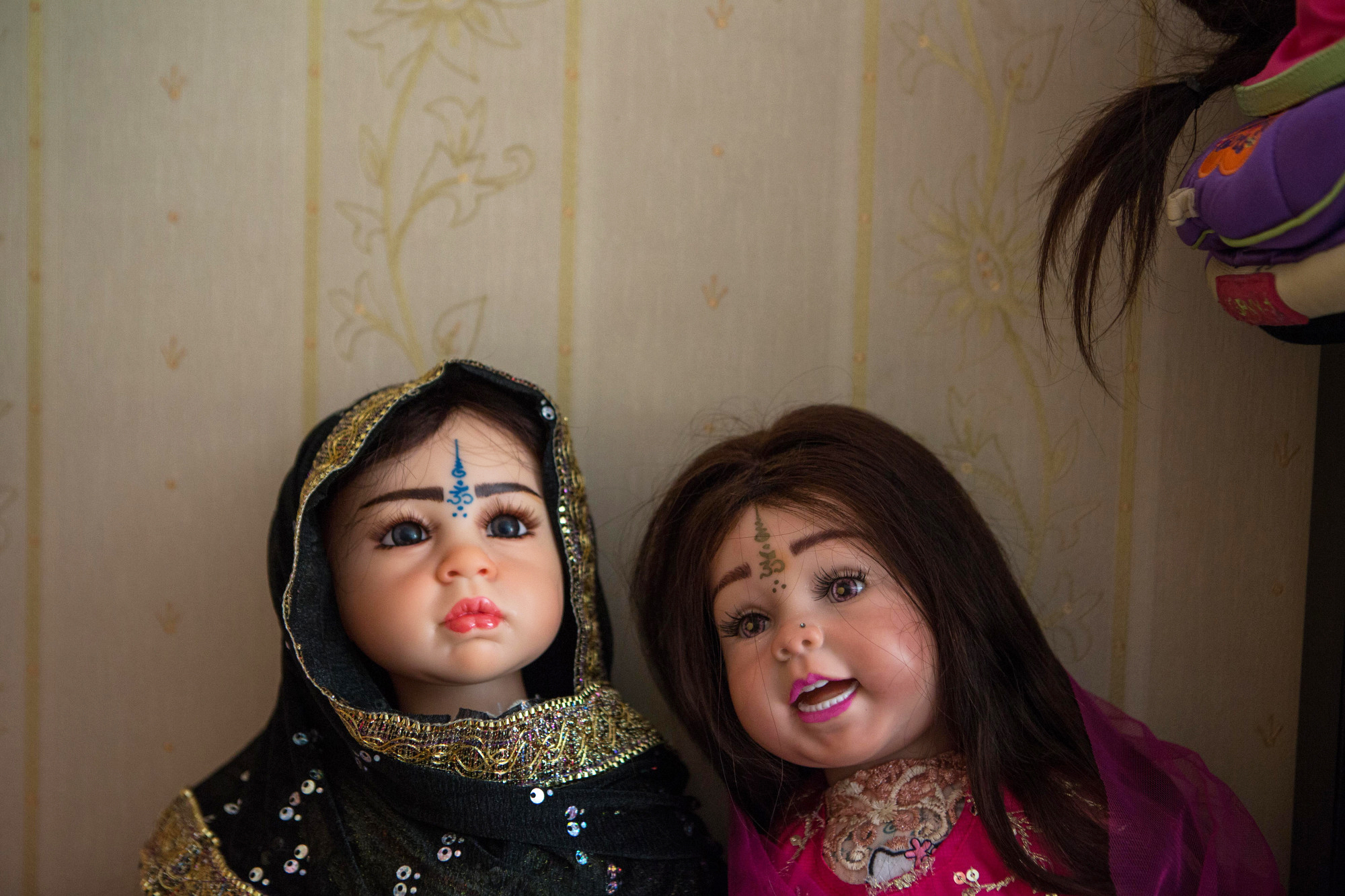
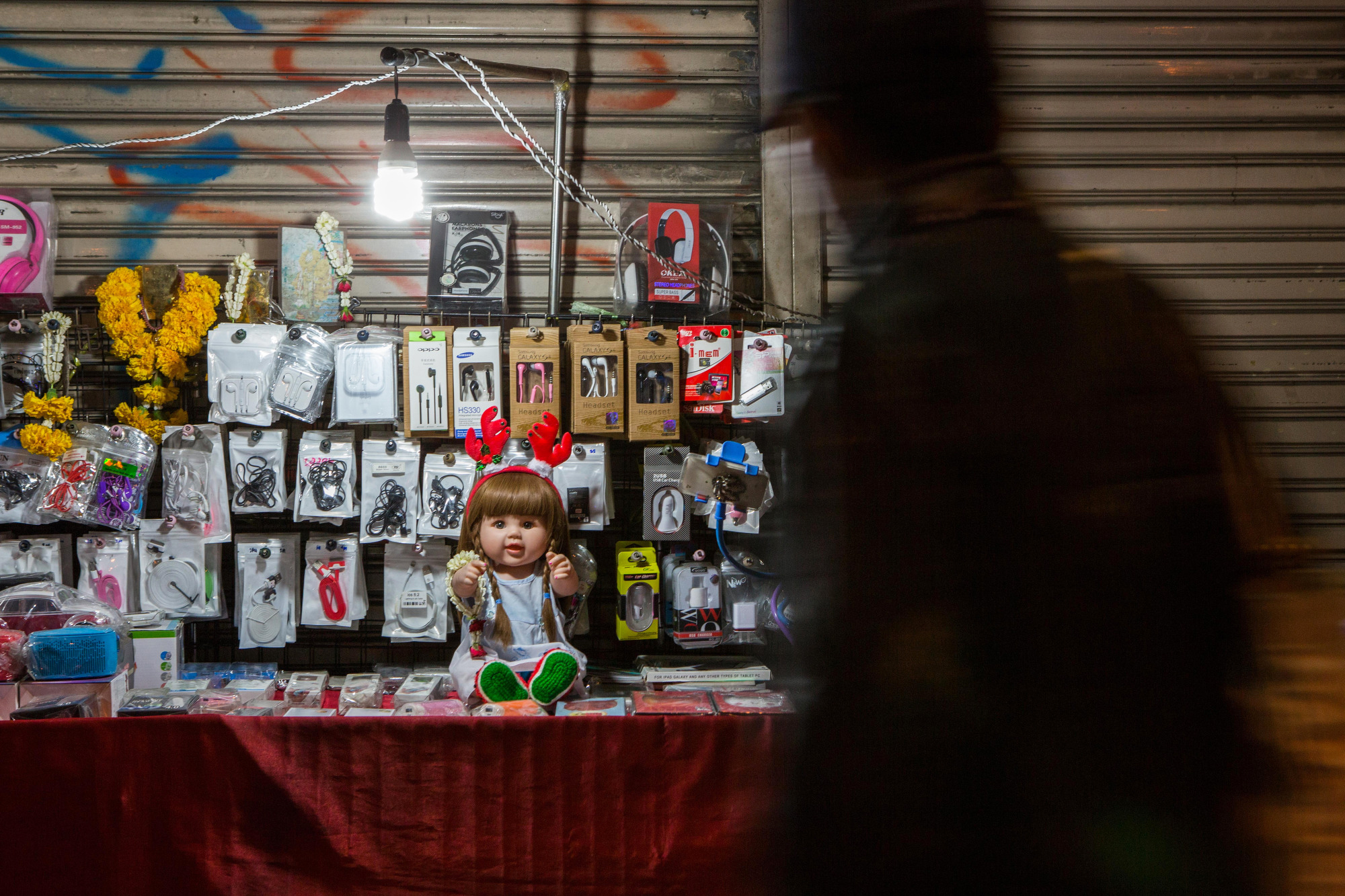
More Must-Reads from TIME
- Donald Trump Is TIME's 2024 Person of the Year
- Why We Chose Trump as Person of the Year
- Is Intermittent Fasting Good or Bad for You?
- The 100 Must-Read Books of 2024
- The 20 Best Christmas TV Episodes
- Column: If Optimism Feels Ridiculous Now, Try Hope
- The Future of Climate Action Is Trade Policy
- Merle Bombardieri Is Helping People Make the Baby Decision
Contact us at letters@time.com